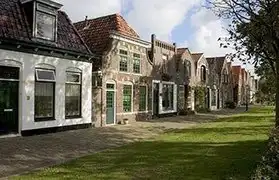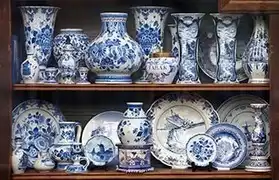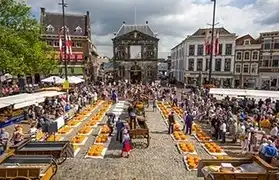Learn Dutch for free
Learn Dutch fast and easily with our language course ‘Dutch for beginners’.
![en]() English (UK)
»
English (UK)
»
![nl.png]() Nederlands
Nederlands
| Learn Dutch - First words | ||
|---|---|---|
| Hi! | Hallo! | |
| Hello! | Dag! | |
| How are you? | Hoe gaat het? | |
| Good bye! | Tot ziens! | |
| See you soon! | Tot gauw! | |
Why should you learn Dutch?
Learning Dutch offers a gateway to understanding the culture and history of the Netherlands. It allows you to experience Dutch literature, art, and traditions in their original form, providing a deeper cultural immersion. Exploring the Netherlands becomes a richer experience when you speak Dutch. You can communicate with locals, understand signs and menus, and feel more at home in Dutch-speaking communities. It transforms your travel experiences from being merely observational to interactive.
Dutch is a key to unlock business opportunities. The Netherlands is known for its innovative industries and welcoming environment for entrepreneurs. Speaking Dutch can give you a competitive edge in negotiations and networking. Understanding Dutch opens up academic opportunities. Many universities in the Netherlands offer programs in English, but knowing Dutch broadens your choices and enhances your learning experience, providing access to more resources and community involvement.
Learning Dutch is relatively easy for English speakers. The two languages share a Germanic root, making Dutch grammar and vocabulary more accessible. This familiarity can make the learning process quicker and more enjoyable. The Dutch have a strong presence on the global stage, especially in sectors like agriculture, engineering, and creative industries. Speaking Dutch can facilitate collaborations and partnerships in these fields, making it a valuable skill for professionals.
Dutch culture is rich with festivals, traditions, and a unique approach to life. Learning the language allows you to participate in these cultural events more fully, understanding the nuances and meanings behind local customs. Embracing Dutch is more than learning a language; it’s about connecting with a community. It enables meaningful interactions, from casual conversations to lifelong friendships. Learning Dutch is a journey that enriches your personal and professional life, opening up new horizons of understanding and opportunity.
Even Dutch beginners can learn Dutch efficiently with ‘50LANGUAGES’ through the practical sentences. First you will get to know the basic structures of the language. Sample dialogues help you to express yourself in the foreign language. Prior knowledge is not required.
Even advanced learners can repeat and consolidate what they have learned. You learn correct and frequently spoken sentences and you can use them immediately. You will be able to communicate in everyday situations. Use your lunch break or time in traffic to learn a few minutes of Dutch. You learn on the go as well as at home.
Learn for free...
Text book - book2 English - Dutch for beginners Learn Dutch - First words
Learn Dutch with the Android and iPhone app ‘50LANGUAGES’
The Android or iPhone app ‘Learn 50 languages’ is ideal for all those who want to learn offline. The app is available for Android phones and tablets as well as iPhones and iPads. The apps include all 100 free lessons from the 50LANGUAGES Dutch curriculum. All tests and games are included in the app. The MP3 audio files by 50LANGUAGES are a part of our Dutch language course. Download all audios for free as MP3 files!








